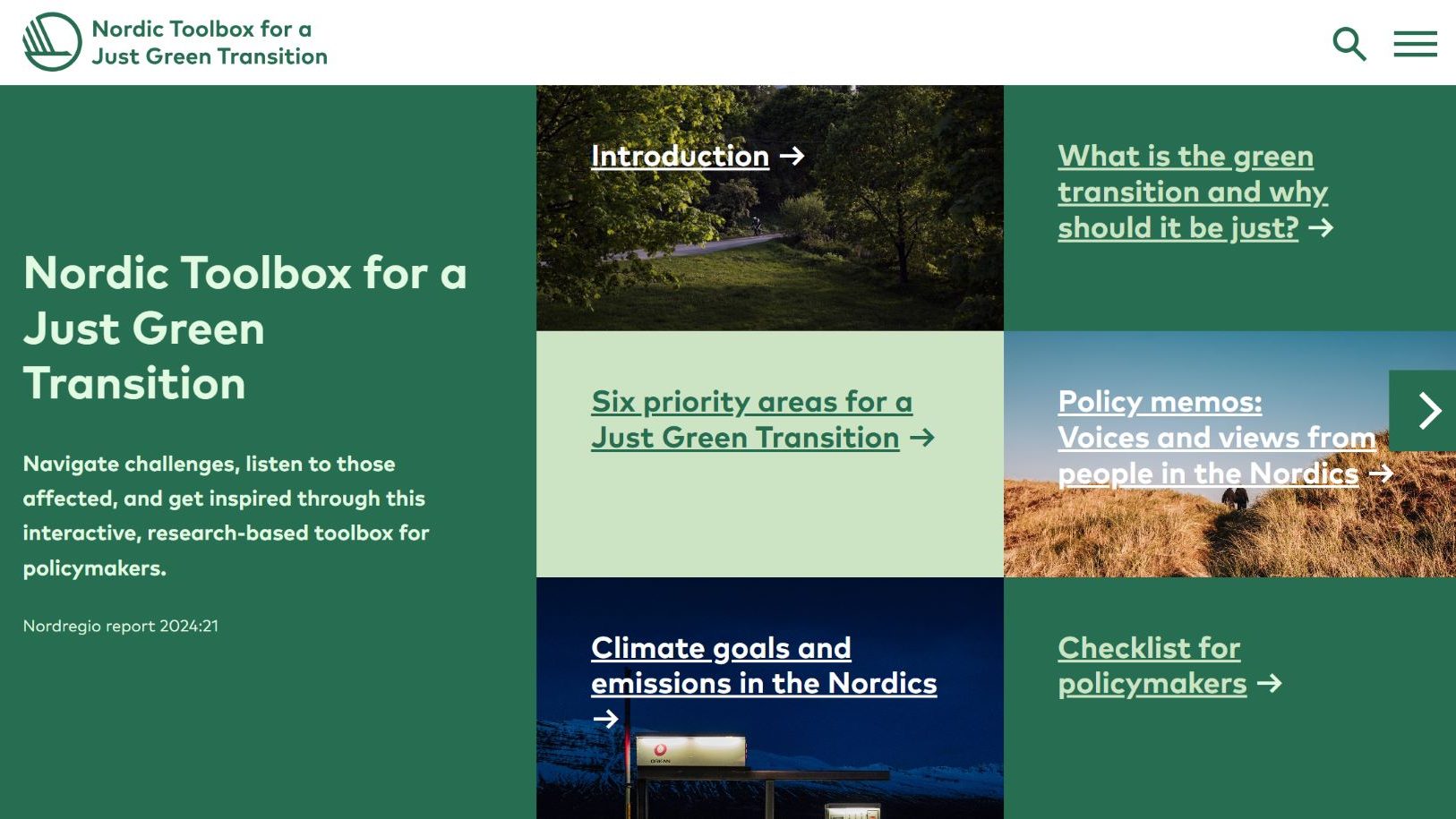To achieve their climate goals, the Nordic countries need to implement ambitious climate policies in the coming years. The green transition impacts all parts of society, and the just green transition means adding a social dimension: it must be inclusive and avoid disproportionately affecting certain groups.
Policymakers face a major challenge of ensuring that everyone is part of the journey to climate neutrality. This calls for a broader understanding of the social implications, which is why the Nordic research institute Nordregio just launched a digital toolbox, providing policymakers with the knowledge and resources to develop inclusive, fair policies.
Nordregio’s research, supported by the Nordic Council of Ministers, identified six actionable priority areas to make the transition inclusive: developing a vision, engaging citizens, assessing and mitigating social and regional impacts, adopting a place-based approach, investing in inclusive reskilling and upskilling, and supporting green choices.
“The user-friendly toolbox highlights the key areas policymakers need to keep track of, which is invaluable when working to ensure that Iceland’s green transition is both fair and inclusive”, says Eggert Benedikt Guðmundsson, Leader of Sustainable Development in the Prime Minister´s Office of Iceland, and chair of the research project’s steering group.
The consequences of an unjust green transition could be far-reaching, with increased social inequalities and divides, reduced economic productivity, and lower competitiveness.
“We want to point out in a simple way what policymakers need to take into account to make the green transition as fair as possible”, Nora Sánchez Gassen, senior researcher at Nordregio.
The toolbox is the final product of Nordregio’s research project Not Just a Green Transition (NJUST) – Examining the path towards a socially just green transition in the Nordic Region. The content is based on desk research, a Nordic survey and discussions with representatives of social groups. Extra attention is paid to groups at risk of being left behind in the transition: young people, older adults, people with disabilities, and those at risk of unemployment. The toolbox collects four years of research to guide policy development.
Access the toolbox here:











